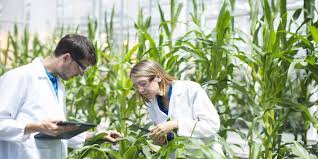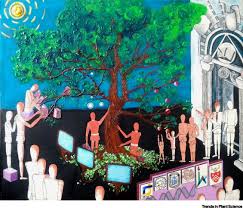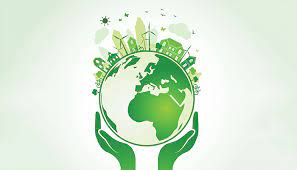Emerging Issues in Biotechnology
Recall that biotechnology involves the use of living organisms in bioprocess production. Until recently, development in biotechnology involved the identification and use of such identified organisms.
The evolution of genetic engineering opened a completely new opportunities. First, it showed that in addition to using existing whole organisms, components of organisms can be isolated and used, or composition of the whole organism or its component can be altered before use.
The emerging technologies for isolating a component or altering a component or a whole organism to achieve an optimal goal has opened a completely new and diverse opportunities in biotechnology research and development.
It led to a more understanding of the various living components that could potentially be altered to achieve designed goals.
For instance, the structure of the DNA was deciphered in 1953 by Watson and messenger RNA discovered in 1960. By the end of 1961, the genetic code was unravelled and in 1977, genetically-engineered bacteria was for the first time used to make human growth proteins.
In 1978, Hutchinson and Edgell proved that mutation can be induced at specific sites in a DNA while in 1979 the first monoclonal antibodies were synthesized.

These developments began a new era in biotechnology. Induced mutation brought an opportunity to modify existing organisms to suit specific purposes while the synthesis of monoclonal antibodies help to develop compounds that could selectively be used against disease- causing organisms and other undesirable organisms in the environment.
These developments led to several developments, creation and unravelling of genetically-related information that is relevant to medicine, agriculture and environmental management.
These include creation of the first genetically engineered plants, cloning of mice and production of insulin and several other drugs from genetically engineered bacteria by the end of 1982.
By the end of 1984 artificial chromosomes been made and genetic markers for specific diseases developed.
Other findings included animal cloning and tissue regeneration from embryonic stem cells and genetic coding and sequencing of animal genome including those of humans in the first decade of the this Century.
In summary, the history of biotechnology could be divided into three major period of ancient, classical and modern history. Ancient history started more than 6000 BC when man first used fermentation to process some of its food materials.
During this period, no one knew that technology involved the use of other living organisms in processing foods. This knowledge came in the Middle Ages during the classical history, which started in the 14th century AD.
During this period, equipment such as microscopes was discovered and with it came the existence of living organisms that cannot be seen with the unaided eyes.
Read Also: Perceived Advantages of Biotechnology
The discovery of these microorganisms, the roles they play in food processing especially fermentation and techniques for manipulating them (ability to alter their populations and transfer them from one medium to another) led to several experiments on how to make them work better and faster to produce food in higher quality and quantity.
This gave rise to biotechnology; a term coined in 1919 by a Hungarian agriculturist known as Karl Ereky. The emergence of the term biotechnology did not only herald a new discipline but also a new era in biotechnology.
The era of modern biotechnology was born. This saw the development of very complex materials, equipment and methods of manipulating microorganisms, cells and parts of cells in bioprocess production.
It also saw a significant diversification of biotechnology methods into many other fields other than food production.



